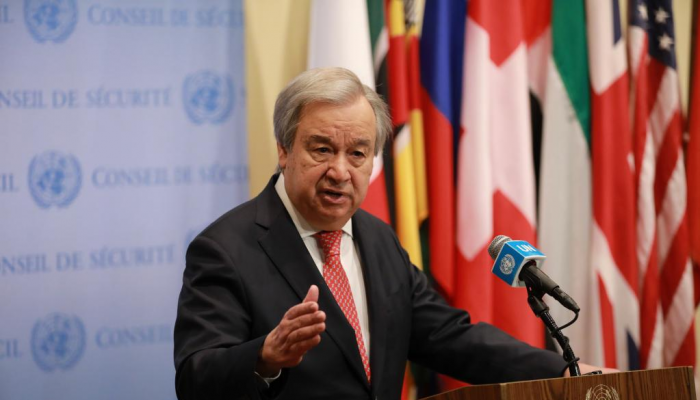
New York : United Nations Secretary-General Antonio Guterres said that the progress toward gender equality is "vanishing before our eyes," and it will take 300 years to bridge that gap, according to the official release from the UN.
While addressing the UN session of the Commission on the Status of Women on Monday, Guterres said, "It takes on even greater significance at a time when women's rights are being abused, threatened, and violated around the world. Progress won over decades is vanishing before our eyes." He also recalled the incidents where women's rights were taken away and said that in Afghanistan, women have been erased from public life. He further stated that in many other places, women's sexual and reproductive rights were rolled back.
"In some countries, girls going to school risk kidnapping and assault. In others, police prey on vulnerable women they have sworn to protect. Gender equality is growing more distant. On the current track, UN Women puts it 300 years away," the UN Chief said.
"Maternal mortality is increasing. One woman dies every two minutes during pregnancy or childbirth; most of those deaths are preventable," Guterres added.
He further stated that the impact of the Covid-19 pandemic had forced millions of girls to drop out of school. Meanwhile, mothers and caregivers were forced out of paid employment, and children were forced into early marriage, according to the release.
From Ukraine to the Sahel, crisis and conflict affect women and girls first and worst. And at the international level, some countries now even oppose the inclusion of a gender perspective in multilateral negotiations, Guterres told the Commission on the Status of Women.
The Commission on the Status of Women (CSW) is the principal global intergovernmental body exclusively dedicated to the promotion of gender equality and the empowerment of women. A functional commission of the Economic and Social Council (ECOSOC), it was established by ECOSOC resolution 11(II) of 21 June 1946, according to the statement.
Guterres said the international community must also create a safe digital environment for women and girls, outlining his third point. In this regard, the UN is working to advance a code of conduct for information integrity on digital platforms, aimed at reducing harm and increasing accountability.
The Secretary-General stressed that promoting women's full contributions to science, technology and innovation is not an act of charity or favour to women, but a "must" that benefits everyone.
"The Commission on the Status of Women is a dynamo and catalyst for the transformation we need. Together, let's push back against the push back on misogyny, and forward for women, girls, and our world," he said.